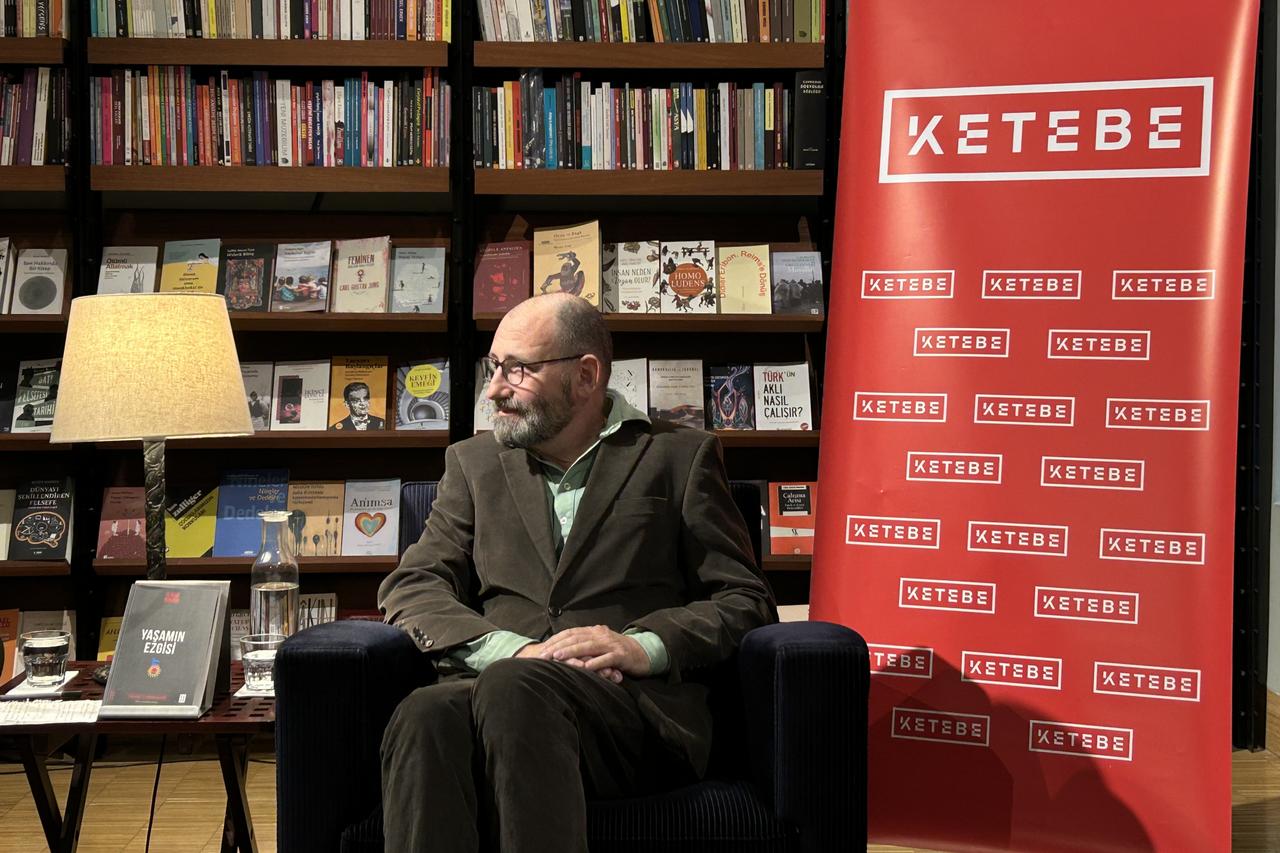
French philosopher and writer Claude Romano met book lovers in Istanbul, where he spoke about the deep, often overlooked bond between literature and philosophy, and warned against the cultural impact of a world shaped by screens, social media and artificial intelligence.
The talk, titled “On Literature and Philosophy,” was hosted by Ketebe Publishing at Robinson Crusoe 389 Bookstore in Beyoglu, a well-known independent bookstore in central Istanbul. Romano shared his reading experience of American novelist William Faulkner and explained why, in his view, literature and philosophy have always been concerned with the same human problems, even if they follow different methods.
Romano underlined that throughout the 20th century, many leading philosophers engaged closely with literary texts and did not see literature as a secondary field. He pointed to major French thinkers such as Jacques Derrida and Gilles Deleuze and noted that “they were all very strongly interested in literature.”
According to him, literature and philosophy look at the same existential issues, but philosophy tries to approach them through conceptual clarity, while literature reaches them through narrative, image and character.
He described philosophy as a universal activity that is nonetheless tied to individual experience, saying that philosophy is not detached from the person who thinks, reads and interprets. For him, the act of thinking is not something abstracted from life but something that grows out of personal encounters with texts, people and traditions.
Responding to questions on how digital media has changed attention spans, Romano said he considered himself “lucky” to have grown up in a period without computers, smartphones or constant visual exposure. “All my knowledge came from my surroundings and the books I could reach,” he said, adding that younger generations are growing up in an environment where images, the internet and social media define perception much more than written language.
He stressed that this cultural shift is so profound that “it is even hard to predict its effects,” noting that humanity may only be at the beginning of this transformation. Even so, he insisted that nothing can replace the intimate and demanding relationship a person builds with a book. He expressed hope that societies will find ways “to protect freedom of thinking and freedom of reading” in the face of growing digital pressure.
Romano also shared his reservations about artificial intelligence, which he described as a tool that is “bought by asking questions,” “not faithful,” and “not interested in reality.” In his assessment, relying on AI to provide ready-made answers creates an intellectual risk: a person receives information but slowly loses the freedom to control emotions and to make the effort of thinking.
“The danger,” he said, “is that you transfer the act of thinking to a machine as if it were a burden. If you do not think about yourself and do not shake your own ideas, what meaning can life have?” By framing the issue this way, he drew attention to the relationship between human autonomy and the disciplines of reading and writing.
Speaking about his book “The Melody of Life” (The original title is "La Chant La Vie"), Romano said the work was born unexpectedly. He recalled that in the summer of 2004, he dedicated himself to reading Faulkner’s novels in a systematic and comprehensive way. At the time, he said, “I had no plan to write a book from these readings.” But when the summer ended and he looked back over his notes, he realized they had turned into a coherent whole. “I told myself, ‘I think this has become a book,’” he recounted, adding that Faulkner himself described the writing experience in a similar, unplanned manner.
Romano focused especially on Faulkner’s way of representing reality, noting that although Faulkner wrote within the cultural frame of the American South, he managed to speak to universal emotions. He explained that the fictional county of Yoknapatawpha, with all its limited and local traits, still reached global readers because Faulkner built it on empathy and on an intense phenomenological sense of human experience.
Claude Romano, born in 1967, is known for his work on event philosophy and what he calls “evental hermeneutics,” an approach that studies how unexpected events change human existence and self-understanding.
He was awarded the Moran Prize of the Academie Francaise in 2010 for his contribution to phenomenology, received the Gegner Prize in 2011, and in 2020 was honored with France’s Grand Prix de Philosophie. He currently teaches philosophy at the Australian Catholic University, continuing to write on phenomenology, selfhood and the ways experience is narrated.